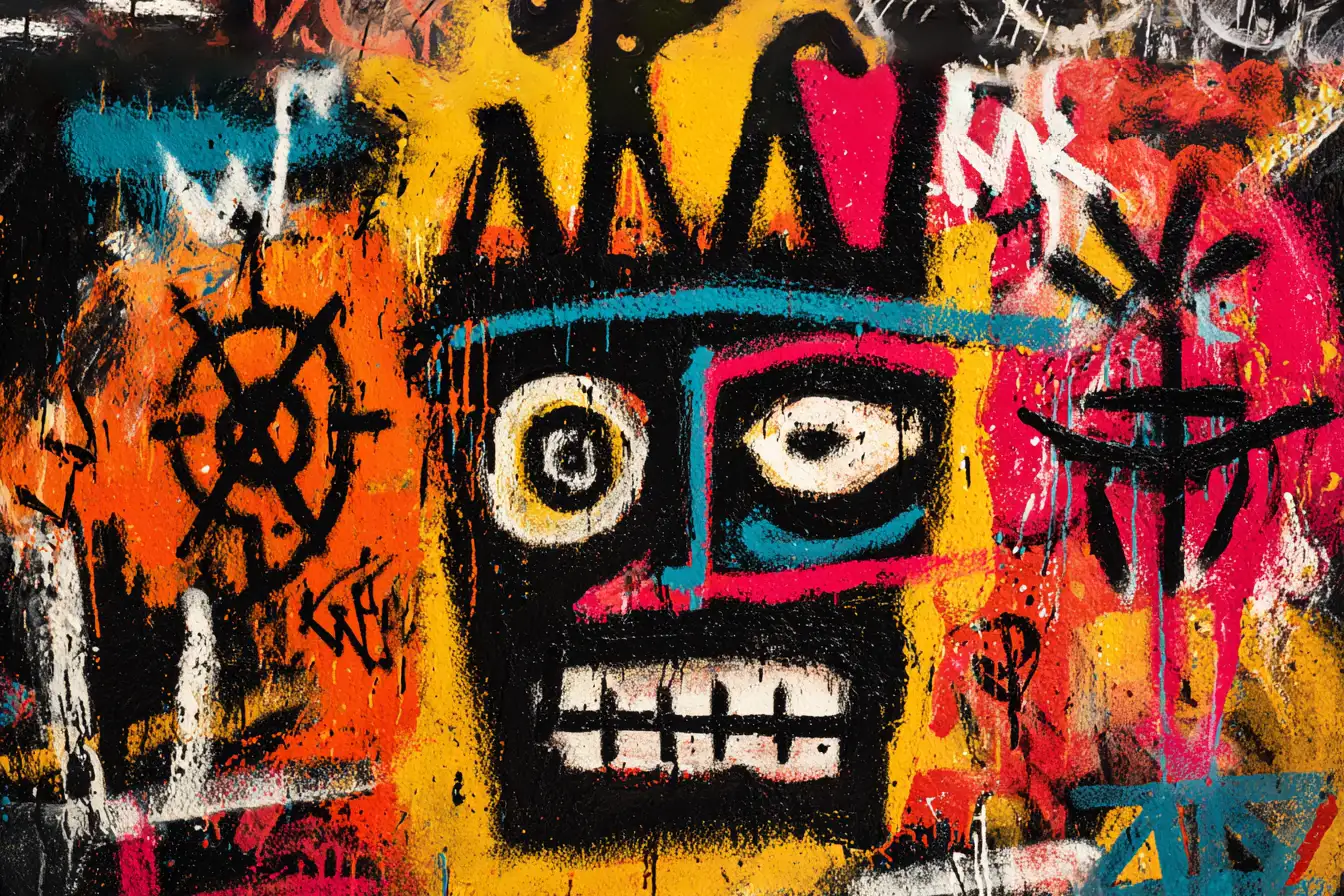When the World Goes Dim: What Depression Really Feels Like (and What to Do Next)
Depression isn’t just sadness wearing a fancy coat. It’s not being bummed about your favorite show getting canceled or feeling blue after a breakup. It’s the emotional equivalent of trying to run underwater—everything takes ten times the effort, and you’re still not getting anywhere.
Picture this: You wake up, and it’s like someone swapped out your brain’s operating system overnight. The world didn’t change colors exactly, but everything looks… muted. Like someone turned down the saturation on life itself. That thing you loved yesterday? It’s still there, but it feels like looking at a photo of food when you’re starving—you know it should matter, but it just… doesn’t.
The Weight of Nothing
Depression is sneaky like that. It doesn’t announce itself with dramatic music and storm clouds. It slips in through the back door and starts rearranging your mental furniture when you’re not looking. Suddenly, brushing your teeth feels like climbing Mount Everest in flip-flops. Answering texts becomes a Herculean task. And the simplest decisions—what to eat, what to wear, whether to get out of bed—feel impossibly heavy.
It’s like your emotional thermostat is broken, stuck on “numb” with occasional spikes into “everything hurts.” You’re not crying into your pillow every night (though sometimes you are). More often, you’re just… empty. Going through the motions of being a person while feeling like you’re watching someone else live your life.
Your brain starts telling you stories that sound convincing but are complete bullshit: You’re lazy. You’re broken. Everyone would be better off without you. These thoughts feel so real, so reasonable, that you start believing them. But here’s the thing—depression lies. It’s basically a very persuasive asshole that’s taken up residence in your head.
Think of it like having a housemate who constantly moves your stuff around, eats your food, and tells you that you’re terrible at everything while you’re trying to live your life. Except this housemate lives in your brain, and you can’t just change the locks.
The Invisible Heavy
One of the cruelest parts of depression is how invisible it is. You can’t point to a cast on your leg or a bandage on your arm and say, “See? This is why I’m struggling.” Instead, you’re carrying around this invisible weight that makes everything harder, and from the outside, you look… fine.
People start getting impatient. They want you to “snap out of it” or “focus on the positive.” They mean well, but it’s like telling someone with pneumonia to just breathe better. The system is compromised. The usual tools aren’t working.
You start feeling guilty for being tired all the time, for canceling plans, for not being able to muster enthusiasm for things that used to light you up. The guilt becomes another layer of the problem—now you’re depressed about being depressed, which is some next-level psychological fuckery.
Meanwhile, your brain is working overtime just to keep you functional. Simple tasks require the kind of mental energy that used to fuel entire creative projects. It’s exhausting being exhausted, and explaining that to someone who’s never experienced it feels impossible.
The Fog Isn’t Forever
I know it doesn’t feel like it when you’re in the thick of it, but this isn’t your permanent address. Depression feels eternal because it messes with your brain’s ability to imagine a future where you feel different. It’s like being colorblind but for hope—you literally can’t see the other possibilities.
But they’re there. Even when your brain is convinced otherwise.
Recovery isn’t linear, and it doesn’t look like a motivational poster. Some days you’ll feel like you’re making progress, and then you’ll wake up the next morning right back in the fog. That’s not failure—that’s how healing works. It’s like learning to walk again after an injury. You don’t go from bedridden to marathon runner overnight.
Small Steps, Not Giant Leaps
Forget the motivational poster bullshit about “just think positive” or “choose happiness.” When you’re depressed, that advice is about as useful as telling someone with a broken leg to “just walk it off.” Instead, think smaller. Microscopic, even.
Maybe today you can’t shower, but you can wash your face. Maybe you can’t call your friend back, but you can send a heart emoji. Maybe you can’t clean your room, but you can make your bed—or hell, just pull the covers up. These aren’t consolation prizes. They’re acts of rebellion against the voice telling you that you can’t do anything right.
It’s like tending a garden after a storm. You don’t replant the whole thing at once. You pick up one fallen branch, then another. You water one plant, then the next. Eventually, things start growing again—but it happens so slowly you might miss it if you’re looking for dramatic transformation.
Start with what feels manageable, even if manageable is “I put on socks today.” Celebrate the small wins because when you’re climbing out of a hole, every inch upward matters. The person who tells you that’s not enough probably hasn’t spent three days debating whether they have the energy to make toast.
The Body Keeps Score
Depression isn’t just a mind thing—it lives in your body too. Your shoulders might carry the weight of unexpressed grief. Your chest might feel tight with unshed tears. Your limbs might feel heavy, like you’re moving through thick honey while everyone else glides through air.
Movement can help, but not in the “exercise will cure your depression” way that wellness culture pushes. Sometimes movement is just stretching in bed. Sometimes it’s dancing badly to one song in your kitchen. Sometimes it’s taking a walk around the block and calling it an adventure.
Your body is doing its best to carry you through this. Be gentle with it. Feed it when you can, even if it’s cereal for dinner. Let it rest when it needs to. Notice what it’s telling you without judgment.
Finding Your People
Depression wants you to believe you’re alone, that nobody gets it, that you’re too much for people to handle. This is perhaps its biggest lie. You’re not too much. The world just isn’t always enough.
Finding your people doesn’t mean you need a whole support network mapped out like some Pinterest board. Sometimes it’s one person who texts you memes when you’re struggling. Sometimes it’s a therapist who doesn’t make you feel like a broken thing that needs fixing. Sometimes it’s an online community where people understand why leaving the house feels like a victory.
Professional help isn’t admitting defeat—it’s calling in reinforcements. Therapy isn’t about being “crazy”; it’s about having someone in your corner who knows how to help you untangle the mess in your head. Medication isn’t giving up; it’s giving your brain the chemical boost it needs to function, like putting gas in your car.
The right therapist feels like talking to someone who speaks your language fluently. The wrong therapist feels like trying to explain color to someone who’s never seen. Don’t settle for someone who makes you feel worse about yourself. You deserve support that actually supports.
The Art of Gentle Persistence
Recovery is an art form, and like any art, it requires practice. Some days you’ll nail it—you’ll feel connected to yourself and the world around you. Other days you’ll feel like you’re finger-painting with your feet. Both are part of the process.
Gentle persistence means showing up for yourself even when you don’t feel like it, but without the brutality of “pushing through.” It’s the difference between forcing a door and gently trying different keys until you find one that fits.
It means forgiving yourself for the days when survival is enough. It means celebrating progress that might look invisible to everyone else. It means understanding that healing isn’t a performance for other people—it’s a private revolution happening inside you, one small choice at a time.
The Plot Twist You Didn’t See Coming
Here’s something depression doesn’t want you to know: feeling better isn’t about returning to some previous version of yourself. It’s about becoming someone new. Someone who’s been through some shit and came out with a deeper understanding of what it means to be human.
You don’t emerge from depression “fixed” like a computer after a software update. You emerge like a tree that’s weathered a storm—maybe a little scarred, definitely stronger, definitely more interesting. You develop a sixth sense for when others are struggling. You become the kind of person who can sit with someone in their darkness without trying to drag them into the light before they’re ready.
The person you become isn’t despite your struggle with depression—it’s because of it. The sensitivity that makes you vulnerable to emotional pain also makes you incredibly empathetic. The depth that allows you to feel despair also allows you to feel profound joy when it returns.
This doesn’t mean depression is a gift or that suffering makes you special. Fuck that noise. But it does mean that the qualities that make you susceptible to mental health struggles are often the same qualities that make you beautifully, deeply human.
When the Clouds Part
Recovery looks different for everyone, but there are moments—small ones at first—when the fog lifts just enough for you to remember who you are underneath all this. Maybe it’s laughing at something genuinely funny. Maybe it’s feeling excited about a song on the radio. Maybe it’s waking up one morning and realizing you’re looking forward to your coffee instead of dreading the day.
These moments don’t erase the hard days, but they remind you that other experiences are possible. They’re like little breadcrumbs leading you back to yourself. Follow them, even when the path disappears again.
Right Here, Right Now
If you’re reading this and recognizing yourself in these words, I need you to know something: You’re not broken. You’re not a burden. You’re not too much or not enough. You’re a human being going through something incredibly difficult, and you’re still here. That matters more than you know.
The world needs you in it. Not the version of you that you think you should be, but exactly who you are right now—struggles and all. Your story isn’t over. This chapter is just really fucking hard.
Take it one breath at a time. One small step. One moment of gentleness with yourself. The fog will lift, even if you can’t see through it right now. And when it does, you’ll understand something about resilience that can only be learned by living through the dark and finding your way back to the light.
With tenderness and truth,
The Undelulu Team
This post mentions self-harm. If you’re struggling, please know you’re not alone—and you don’t have to carry this by yourself. Reach out to a crisis line (call or text 988), a trusted friend, or a mental health professional. You matter. You’re worth staying for. Support is always within reach.
 Once you choose hope, anything is possible.
Once you choose hope, anything is possible.— Christopher Reeve
